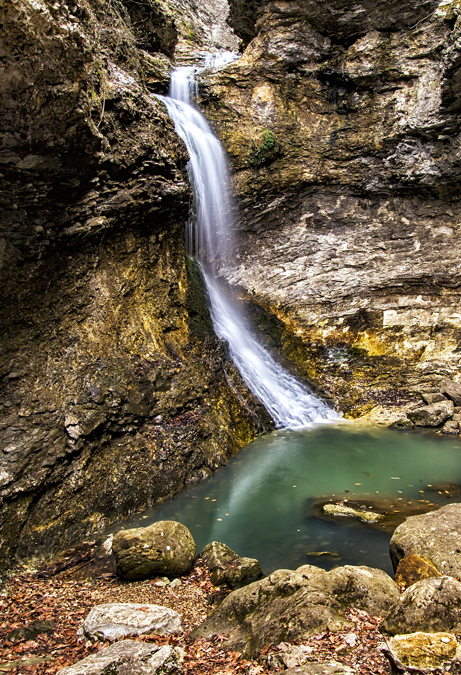Underground waterfalls may not be a common occurrence, but several secret cascades are found in caves and caverns throughout the United States. If your search for waterfalls only includes those above ground, you could be missing out on some of America’s most magnificent falls. Check out these five underground waterfalls you can visit in the U.S.
Ruby Falls – Tennessee

About 3 miles outside of Chattanooga, America’s tallest underground waterfall lies hidden inside a limestone cave in Lookout Mountain. And the discovery of Ruby Falls was entirely by accident. In 1928, chemist and cave enthusiast Leo Lambert was on a quest to open the already well-known Lookout Mountain Cave to the public. During a weekslong project of digging through limestone, Lambert and his crew accessed the cave and came upon a secret 145-foot-tall waterfall.
Lambert named the stunning natural attraction after his high school sweetheart and wife, Ruby. A year later, he opened the waterfall to the public, and Ruby Falls has been a popular Tennessee attraction ever since. To access the falls, visitors take a glass elevator 206 feet down to the limestone cave floor, before embarking on a 1-mile guided tour circling the waterfall while learning the story of its discovery.
Niagara Cave – Minnesota
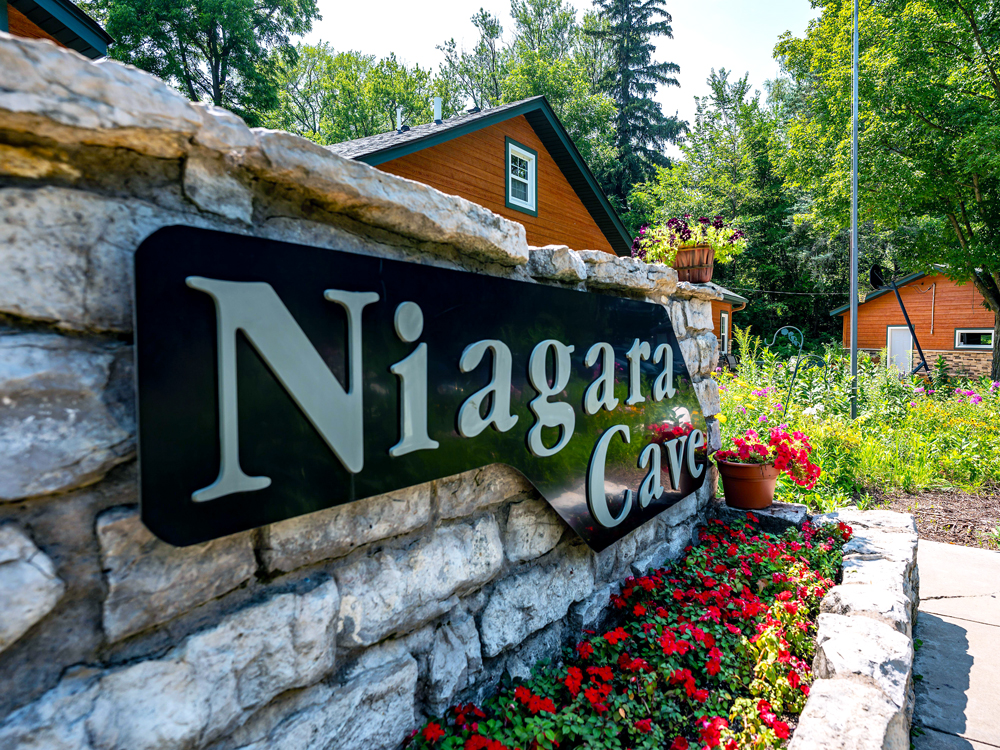
Niagara Cave in Harmony, Minnesota, has remained a family-owned and operated natural attraction since its opening in 1934. Like Ruby Falls, its discovery was accidental, made in 1924 by a farmer who lost three pigs when they fell into a 75-foot sinkhole. The farmer went to retrieve his pigs by lantern light, only to find a massive cavern. Word of the cavern’s discovery soon spread, and in 1932, three men named Al Cremer, Leo Tekippe, and Joe Flynn set out to explore the cave for themselves. What they found was actually a myriad of caverns, complete with a 62-foot waterfall cascading into a stream at the end of a long, naturally carved walkway.
Today, visitors access the cave and underground waterfall by descending 275 steps into a 48-degree-Fahrenheit chamber. The cave is covered from floor to ceiling with stunning stalactites and stalagmites and surrounded by several 450 million-year-old fossils. Niagara Cave is also home to a subterranean wedding chapel that has witnessed the union of more than 400 couples.
Secret Caverns – New York
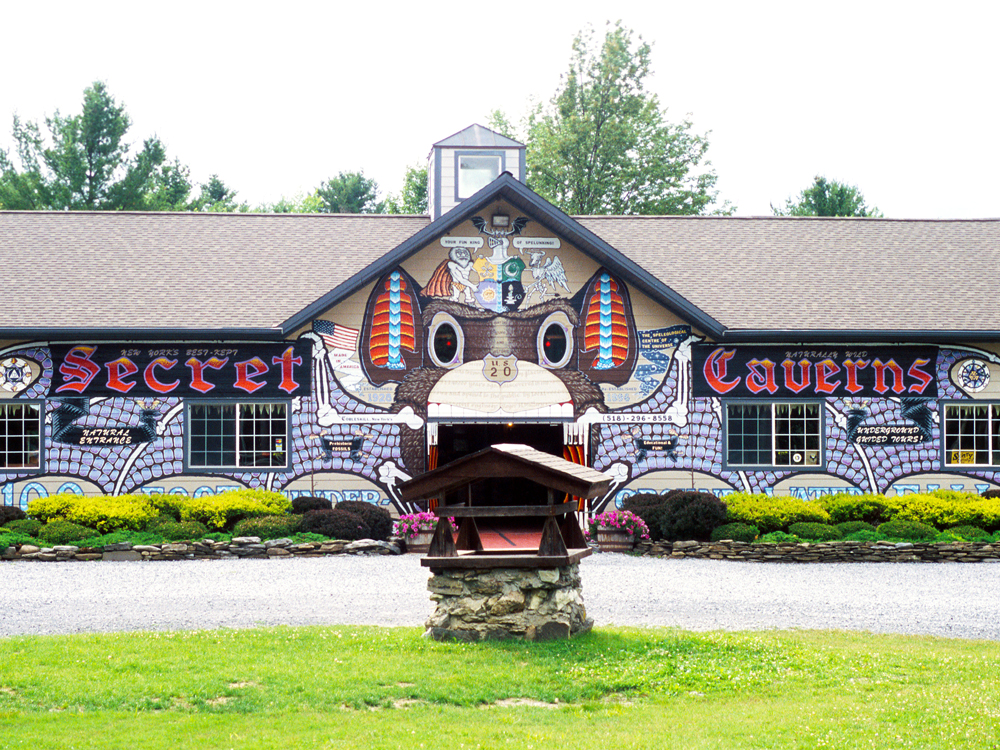
Upstate New York boasts an abundance of nature, from the waterfalls of Ithaca to the hiking trails in the Catskills Mountains and the famous Finger Lakes. This region of New York also claims quite a few caves. One of the most famous (despite its name) is Secret Caverns, which was discovered by local farmers in the 1920s. Secret Caverns is located just a few miles away from another famous attraction, Howe Caverns, in a hamlet aptly named Howes Cave. With a population of under 2,000, this small town is only a speck on the map, but visitors can’t miss the brightly painted signs and kitschy billboards paving the way to the entrance of Secret Caverns.
For decades, visitors have been descending the 103 steps — dubbed the “petrified elevator” — into the cave’s prehistoric limestone passageways. They are thought to have formed millions of years ago during the last ice age. Stalagmites, stalactites, and ancient fossils lead the way to the main attraction: a waterfall with a 100-foot vertical drop in a large cavern at the end of the cave system.
Devil’s Millhopper – Florida
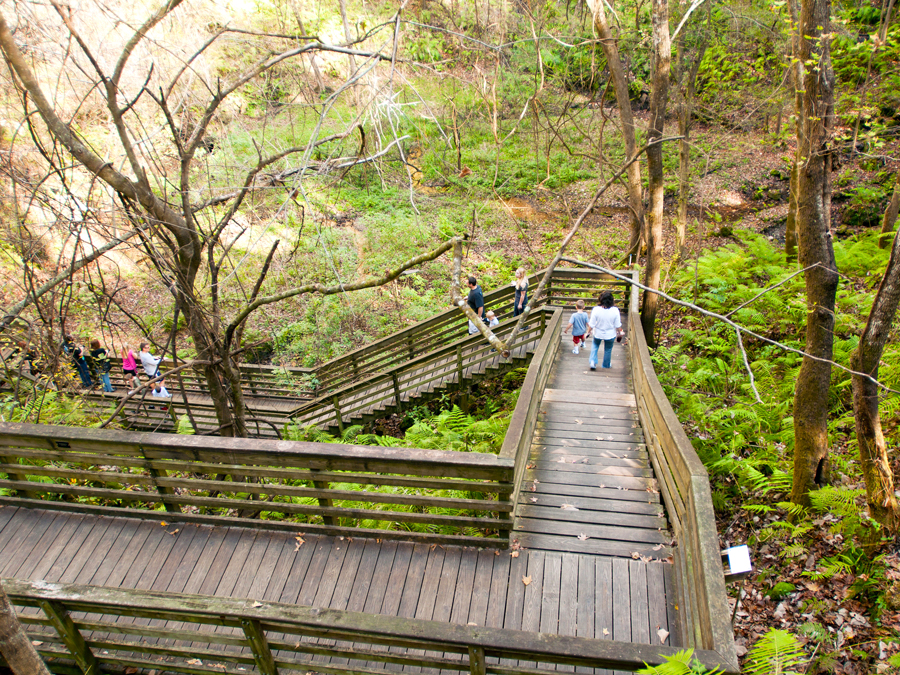
Curious as to how the Devil’s Millhopper sinkhole in northern Florida got its ominous name? While scientists will tell you the sinkhole was formed when the limestone underneath it collapsed in prehistoric times, there are several legends that say otherwise. One story describes early explorers discovering animal bones and fossils on the sinkhole’s floor, leading them to conclude they had jumped down to meet the devil. Another explains the sinkhole was a trap set by the devil to capture the rescuers of a woman he had kidnapped.
The stories have captivated visitors since the site opened to the public in the late 19th century. To visit, you’ll descend 120 feet to the bottom of the sinkhole, which is covered in naturally occurring rainforest, in contrast to the sandy terrain above. Streams of water trickle down the slopes of the sinkhole, but if you visit during the rainy season or after a storm, the volume of water exponentially increases to what can only be called a waterfall.
Eden Falls – Arkansas
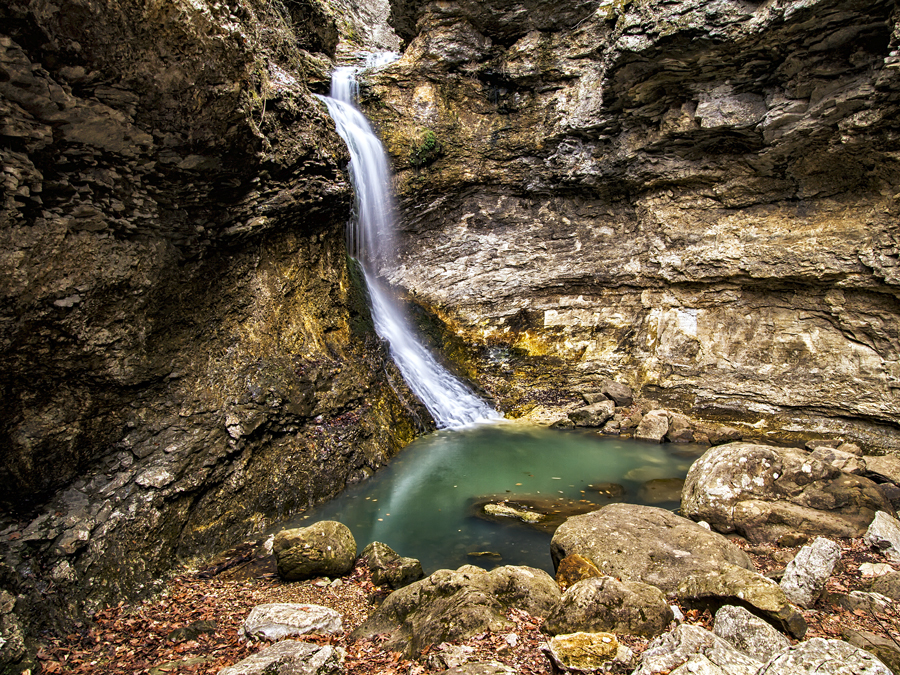
Eden Falls Cave sits at the end of the 2.3-mile out-and-back hike called the Lost Valley Trail, which runs alongside Clark Creek near Ponca, Arkansas. If you visit, be sure to stop and admire the 50-foot-long, naturally carved limestone tunnel and the trail’s namesake, Eden Falls. The final 200 feet of the trek require a crawl through a dark cave, after which you’ll emerge in a larger cavern with an incredible secret waterfall.
Unlike the other caves on this list, Eden Cave has no purpose-built pathway or artificial lighting, and it’s advised that visitors bring at least three sources of light and be prepared to get wet and muddy. Despite the lack of development, this is a popular hiking area, so it’s best to visit during the week if you want to beat the crowds.
More from our network
Daily Passport is part of Inbox Studio, an email-first media company. *Indicates a third-party property.






